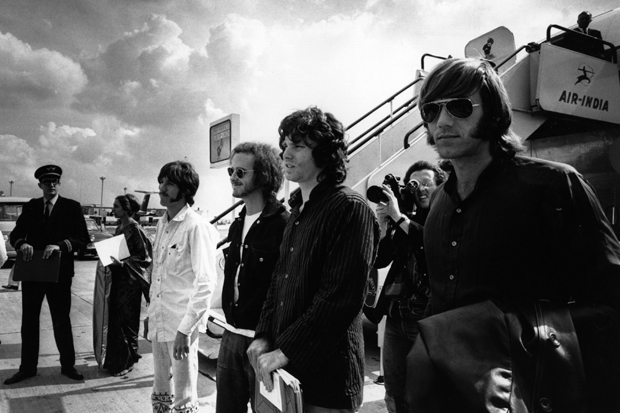How and when do you become ‘a fan’, exactly? You can usually spot pop stars who are losing touch with reality when they start talking about ‘the fans’ as some kind of independent entity, rather than just a load of people who like their songs. For the music obsessive, though, there’s a simple definition. You’re a fan if you buy someone’s new record without even thinking of listening to it first. Fandom accepts no caution. It only ever hopes for the best. It can take the disappointment of underachievement; it might even half-expect it. Fans have a right to criticise the objects of their affection; in fact, no one has more of a right. It’s a matter of ownership, of pride and, at its extreme, of mild derangement.
Sometimes, though, fandom creeps up on you unseen. As I write, I am waiting for my overburdened Estonian postman to deliver a newish album by the Scots group Love and Money, of whom almost no one has heard, I’m sad to say. In their original incarnation in the 1980s, Love and Money made little money but generated surprising quantities of love among people who like their pop literate, allusive, sinuously tuneful and unflashily well played. I found them because Gary Katz, formerly Steely Dan’s producer, oversaw their second album, 1988’s Strange Kind of Love, which contained a memorable minor hit in ‘Halleluiah Man’. The group was based around the slow, bluesy songs and characterful crooning of a long-faced glum called James Grant, who, after the group split up, went on to an even more low-key solo career. In the Nineties I kept an eye out for his records, rather than being wholly engaged, but everything changed with My Thrawn Glory (2000), which I believe to be one of the great lost albums of the past 20 years. So yes, I’m a fan. I stop short of wearing the T-shirt, but not far short.
Why isn’t Grant a huge star? Because he isn’t Lady Gaga. Because he is a funny-looking bugger. And because the radio chose not to play these stately and rather magnificent songs, whose titles — ‘Belle Of My Burlesque’, ‘Does It All Add Up To Nothing?’, ‘Religion’ — tell you all you need to know of the high seriousness and passion with which they were recorded. Other Grant solo albums tend towards the acoustic, but this one is dominated by a small string ensemble and, as counterpoint, some unusually assertive electric guitar work by Grant himself. My Thrawn Glory was the boldest album of his career, and an almost total flop. I have often wondered how Grant coped with its failure. How do any of us cope? His response two years later was a very strange record, I Shot The Albatross, which was other people’s poetry set to music, an idea born either of desperation or of rage. If your public ignore you, punish them accordingly. For years I couldn’t bear to listen to it.
There have been other albums since, more conventional in approach. Of course there have: Grant is a professional, and he has a living to make. But the spark had gone. Last year Love and Money quietly reformed, played some triumphant gigs in Glasgow and recorded a new album. I didn’t even notice: my fandom hadn’t quite lapsed, but it had been placed in suspended animation. Then at a party the other day I met another James Grant fan — we bonded instantly, for madness shared is madness halved — and he said that the new album was a genuine return to form. What, really? But he insisted. His eyes gleamed with fandom renewed. Not just a return to form, but a genuine return to form. I may have looked unconvinced, or possibly struck dumb with disbelief. We have all been stung that way too many times before.
In the meantime, I have been playing the old albums again. Love and Money began as a sort of upmarket funk band, shiny and unformed, but their third album, Dogs in the Traffic (1991), introduced the quieter textures of Grant’s solo career: jazzy touches, a strong folk influence, minor key, melancholy. The first solo record, Sawdust In My Veins (1998), is more introspective still. These and My Thrawn Glory are the fully realised products of a considerable talent. It doesn’t actually matter whether the new one is any good, as these three are good enough. But don’t listen to me: I’m just a fan. Listen to the records instead, and you might be too.
Got something to add? Join the discussion and comment below.
Get 10 issues for just $10
Subscribe to The Spectator Australia today for the next 10 magazine issues, plus full online access, for just $10.
You might disagree with half of it, but you’ll enjoy reading all of it. Try your first month for free, then just $2 a week for the remainder of your first year.













Comments
Don't miss out
Join the conversation with other Spectator Australia readers. Subscribe to leave a comment.
SUBSCRIBEAlready a subscriber? Log in